Machines That Think
By: New Scientist
-
Rs 2,035.75
- Rs 2,395.00
- 15%
You save Rs 359.25.
Due to constant currency fluctuation, prices are subject to change with or without notice.
This Book Could Fix Your Life - The Science of Self Help
By: New Scientist
Rs 2,097.50 Rs 4,195.00 Ex Tax :Rs 2,097.50
This Book Could Save Your Life - The Science of Living Longer Better
By: New Scientist
Rs 1,297.50 Rs 2,595.00 Ex Tax :Rs 1,297.50
Eureka!: Mindblowing Science Every Day of the Year
By: New Scientist
Rs 1,947.50 Rs 3,895.00 Ex Tax :Rs 1,947.50
Eureka! - Mindblowing Science Every Day of the Year
By: New Scientist
Rs 2,035.75 Rs 2,395.00 Ex Tax :Rs 2,035.75
A Journey Through the Universe - A Traveler's Guide from the Center of the Sun to the Edge of the Unknown
By: New Scientist
Rs 2,205.75 Rs 2,595.00 Ex Tax :Rs 2,205.75
This Is Planet Earth - Your Ultimate Guide to the World We Call Home
By: New Scientist
Rs 1,950.75 Rs 2,295.00 Ex Tax :Rs 1,950.75
Zubin Mehta: A Musical Journey (An Authorized Biography)
By: VOID - Bakhtiar K. Dadabhoy
Rs 892.50 Rs 1,050.00 Ex Tax :Rs 892.50
The Hype Machine : How Social Media Disrupts Our Elections, Our Economy and Our Health
By: Sinan Aral
Rs 2,647.50 Rs 5,295.00 Ex Tax :Rs 2,647.50
The Ten Equations that Rule the World: And How You Can Use Them Too - Paperback
By: David Sumpter
Rs 1,947.50 Rs 3,895.00 Ex Tax :Rs 1,947.50
The Contrarian - Peter Thiel and Silicon Valley's Pursuit of Power
By: Max Chafkin
Rs 3,395.75 Rs 3,995.00 Ex Tax :Rs 3,395.75
This is how They Tell Me the World Ends - The Cyberweapons Arms Race
By: Nicole Perlroth
Rs 2,800.75 Rs 3,295.00 Ex Tax :Rs 2,800.75
Will Artificial Intelligence Outsmart Us?
By: Stephen Hawking
Rs 1,255.50 Rs 1,395.00 Ex Tax :Rs 1,255.50
Very Bad People - The Inside Story of the Fight Against the World's Network of Corruption
By: Patrick Alley
Rs 2,155.50 Rs 2,395.00 Ex Tax :Rs 2,155.50
Genius Makers : The Mavericks Who Brought A.I. to Google, Facebook, and the World
By: Cade Metz
Rs 2,970.75 Rs 3,495.00 Ex Tax :Rs 2,970.75
The Alignment Problem - How Can Machines Learn Human Values?
By: Brian Christian
Rs 1,950.75 Rs 2,295.00 Ex Tax :Rs 1,950.75
Scary Smart: The Future of Artificial Intelligence and How You Can Save Our World
By: Mo Gawdat
Rs 3,225.75 Rs 3,795.00 Ex Tax :Rs 3,225.75
System Error : Where Big Tech Went Wrong and How We Can Reboot
By: Rob Reich
Rs 1,947.50 Rs 3,895.00 Ex Tax :Rs 1,947.50
How to Stay Smart in a Smart World: Why Human Intelligence Still Beats Algorithms
By: Gerd Gigerenzer
Rs 2,797.50 Rs 5,595.00 Ex Tax :Rs 2,797.50
A Thousand Brains - A New Theory of Intelligence
By: Jeff Hawkins
Rs 4,497.50 Rs 8,995.00 Ex Tax :Rs 4,497.50
Futureproof - 9 Rules for Humans in the Age of Automation
By: Kevin Roose
Rs 1,440.75 Rs 1,695.00 Ex Tax :Rs 1,440.75
Will Artificial Intelligence Outsmart Us?
By: Stephen Hawking
Rs 1,255.50 Rs 1,395.00 Ex Tax :Rs 1,255.50
Scary Smart : The Future of Artificial Intelligence and How You Can Save Our World
By: Mo Gawdat
Rs 2,515.50 Rs 2,795.00 Ex Tax :Rs 2,515.50
The Hype Machine : How Social Media Disrupts Our Elections, Our Economy and Our Health
By: Sinan Aral
Rs 2,647.50 Rs 5,295.00 Ex Tax :Rs 2,647.50
The Ten Equations that Rule the World: And How You Can Use Them Too - Paperback
By: David Sumpter
Rs 1,947.50 Rs 3,895.00 Ex Tax :Rs 1,947.50
The Contrarian - Peter Thiel and Silicon Valley's Pursuit of Power
By: Max Chafkin
Rs 3,395.75 Rs 3,995.00 Ex Tax :Rs 3,395.75
This is how They Tell Me the World Ends - The Cyberweapons Arms Race
By: Nicole Perlroth
Rs 2,800.75 Rs 3,295.00 Ex Tax :Rs 2,800.75
Will Artificial Intelligence Outsmart Us?
By: Stephen Hawking
Rs 1,255.50 Rs 1,395.00 Ex Tax :Rs 1,255.50
Very Bad People - The Inside Story of the Fight Against the World's Network of Corruption
By: Patrick Alley
Rs 2,155.50 Rs 2,395.00 Ex Tax :Rs 2,155.50
Biscuit Finds a Friend (My First I Can Read)
By: Alyssa Satin Capucilli
Rs 985.50 Rs 1,095.00 Ex Tax :Rs 985.50
Problem Management: An implementation guide for the real world
By: Michael G. Hall
Rs 5,350.75 Rs 6,295.00 Ex Tax :Rs 5,350.75
What If?: Serious Scientific Answers to Absurd Hypothetical Questions
By: Randall Munroe
Rs 2,515.50 Rs 2,795.00 Ex Tax :Rs 2,515.50
Zubin Mehta: A Musical Journey (An Authorized Biography)
By: VOID - Bakhtiar K. Dadabhoy
Rs 892.50 Rs 1,050.00 Ex Tax :Rs 892.50
This Book Could Fix Your Life - The Science of Self Help
By: New Scientist
Rs 2,097.50 Rs 4,195.00 Ex Tax :Rs 2,097.50
This Book Could Save Your Life - The Science of Living Longer Better
By: New Scientist
Rs 1,297.50 Rs 2,595.00 Ex Tax :Rs 1,297.50
Eureka!: Mindblowing Science Every Day of the Year
By: New Scientist
Rs 1,947.50 Rs 3,895.00 Ex Tax :Rs 1,947.50
Eureka! - Mindblowing Science Every Day of the Year
By: New Scientist
Rs 2,035.75 Rs 2,395.00 Ex Tax :Rs 2,035.75
A Journey Through the Universe - A Traveler's Guide from the Center of the Sun to the Edge of the Unknown
By: New Scientist
Rs 2,205.75 Rs 2,595.00 Ex Tax :Rs 2,205.75
This Is Planet Earth - Your Ultimate Guide to the World We Call Home
By: New Scientist
Rs 1,950.75 Rs 2,295.00 Ex Tax :Rs 1,950.75
The Hype Machine : How Social Media Disrupts Our Elections, Our Economy and Our Health
By: Sinan Aral
Rs 2,647.50 Rs 5,295.00 Ex Tax :Rs 2,647.50
The Ten Equations that Rule the World: And How You Can Use Them Too - Paperback
By: David Sumpter
Rs 1,947.50 Rs 3,895.00 Ex Tax :Rs 1,947.50
The Contrarian - Peter Thiel and Silicon Valley's Pursuit of Power
By: Max Chafkin
Rs 3,395.75 Rs 3,995.00 Ex Tax :Rs 3,395.75
This is how They Tell Me the World Ends - The Cyberweapons Arms Race
By: Nicole Perlroth
Rs 2,800.75 Rs 3,295.00 Ex Tax :Rs 2,800.75
Will Artificial Intelligence Outsmart Us?
By: Stephen Hawking
Rs 1,255.50 Rs 1,395.00 Ex Tax :Rs 1,255.50
Very Bad People - The Inside Story of the Fight Against the World's Network of Corruption
By: Patrick Alley
Rs 2,155.50 Rs 2,395.00 Ex Tax :Rs 2,155.50












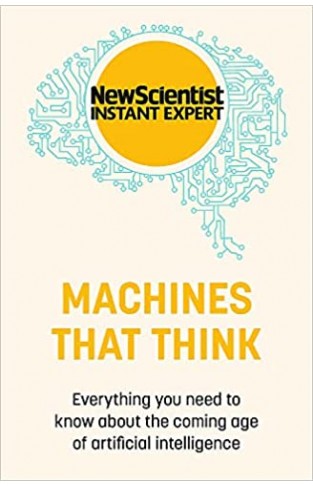
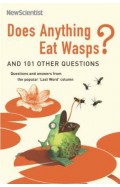


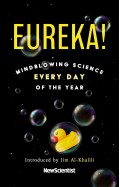
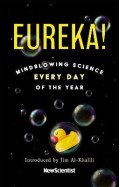
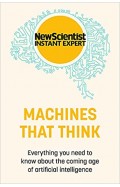


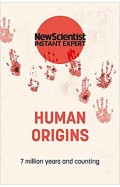
-120x187.jpg?q6)





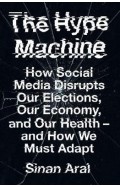


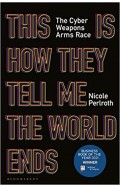
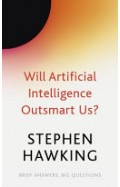


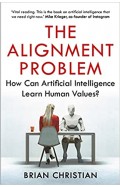
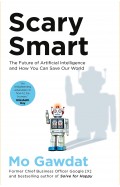

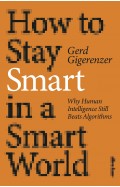
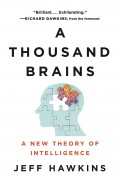
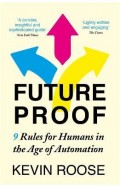
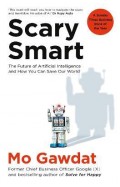
-120x187.jpg?q6)


